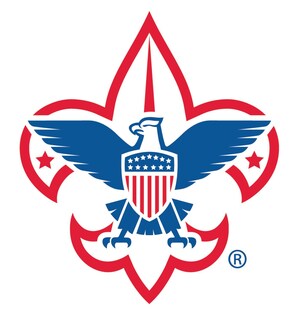Boy Scouts Of America Introduces Search And Rescue Merit Badge
Merit Badge Encourages Scouts to Be Prepared When Enjoying Adventure Outdoors
RENO, Nev., June 6, 2012 /PRNewswire/ -- Every year, thousands of people who were reported missing are saved by specialized search and rescue (SAR) teams. With high-tech navigation tools readily available, many people are able to self-evacuate from remote areas. But the critical skills of SAR are still essential to saving lives. That's why today, the BSA is announcing its first Search and Rescue merit badge at the 2012 National Search and Rescue Conference hosted by the National Association for Search and Rescue (NASAR) and the Mountain Rescue Association (MRA) in Lake Tahoe, Nevada.
Scouts aiming to earn the Search and Rescue merit badge will first learn the important differences between a search and rescue. A search is an emergency situation requiring a team of trained searchers to locate, access, stabilize, and transport a lost person to safety. A rescue is an emergency situation where the person's location is known but he or she must be removed from danger and returned to safety. The term SAR is used together because rescues are often required after the person is found. Scouts will learn the fundamentals of SAR, but the badge will not qualify a young person as a trained searcher. While the BSA seeks to equip young people with relevant and useful skills, the organization stresses that Scouts should never attempt a search or rescue on their own.
"The Boy Scouts of America's motto is 'Be Prepared'—which sometimes translates to knowing how to respond in an emergency," said Bob Mazzuca, Chief Scout Executive of the Boy Scouts of America. "While we are not encouraging our Scouts to practice these new skills independently, we do want them to be ready to lend a hand to the community, and to each other."
To meet the requirements of the Search and Rescue merit badge, Scouts must complete a series of nine requirements relating to SAR fundamentals such as:
- The process and safety methods of working around specialized teams such as aircraft, canine, and aquatic rescue teams
- Identifying differences between search and rescue environments, such as coastal, wilderness, rural, and urban landscapes
- Determining when Universal Transverse Mercator (UTM) and latitude and longitude (Lat/Lon) should be used
As an active SAR volunteer and former associate director of program (once responsible for backcountry operations) at Philmont Scout Ranch, one of the BSA's four high-adventure bases, Doug Palmer fully understands the importance of learning these skills. "One of the main missions of Scouting is to introduce the thrill of the outdoors to young people," Palmer said. "However, we recognize that outdoor adventure comes with some element of risk. Our job is to make sure young people are able to enjoy the environment safely."
One of the most significant lessons Scouts can learn by working toward the Search and Rescue merit badge is how to "stay found" if they lose their way and keep themselves from becoming the subjects of an SAR. "Staying found" is both a simple and easily learned concept ... and it can be a lifesaving one," said Dan Hourihan, NASAR president.
To learn more about merit badges offered by the BSA, visit Scouting.org/meritbadges.
About the Boy Scouts of America
The Boy Scouts of America provides the nation's foremost youth program of character development and values-based leadership training, which helps young people be "Prepared. For Life.™" The Scouting organization is composed of 2.7 million youth members between the ages of 7 and 21 and more than a million volunteers in local councils throughout the United States and its territories. For more information on the Boy Scouts of America, please visit www.scouting.org.
About NASAR
NASAR is an education association comprising thousands of dedicated paid and nonpaid personnel—all active or interested in search and rescue, disaster aid, emergency medicine, and awareness education. We are a self-supporting, nonprofit association acting as the country's admirable servant in furthering the advancement of professional, literary, and scientific knowledge and training in these fields. We are interested in all aspects of search and rescue—the humanitarian cause of saving lives—throughout the United States and around the world.
Response to persons in distress has long been an honorable, charitable tradition. The professionals in search and rescue have carried on this tradition of helping others by dedicating time, information, skills, equipment, and funding to the relief of suffering. We are actively working toward the development of improved coordination and communications among federal, state, local, and volunteer groups. Our primary goal is to aid in the implementation of total, integrated emergency response, rescue and recovery system.
Editor's Note: To download a PDF of Staying Found tips, please visit: http://www.scouting.org/filestore/pdf/staying_found.pdf
SOURCE Boy Scouts of America
WANT YOUR COMPANY'S NEWS FEATURED ON PRNEWSWIRE.COM?
Newsrooms &
Influencers
Digital Media
Outlets
Journalists
Opted In





Share this article